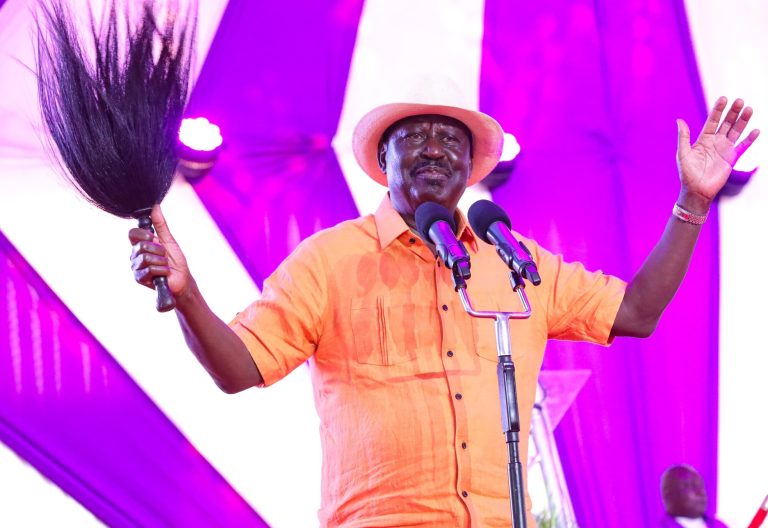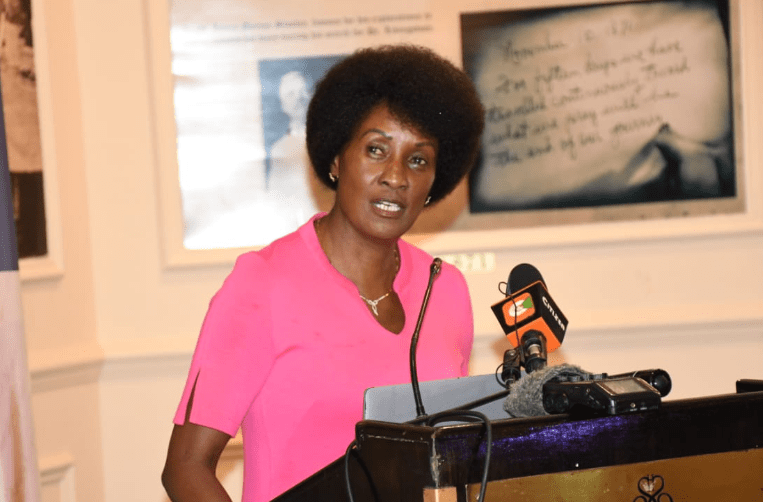Raila must choose legacy over hollow unity

Raila Odinga, the seasoned opposition doyen and enigma of Kenyan politics, stands at a historical crossroads, one that could either redefine his political legacy or dilute decades of unwavering struggle for democracy.
As the face of a broad-based government now seemingly held together by fragile agreements and increasingly hollow rhetoric, Raila finds himself walking a tightrope between continuing his alliance with President William Ruto and joining the swelling ranks of the united opposition.
While the initial idea of a national unity government or broad-based administration was rooted in the noble aim of national cohesion, peace, and economic progress, what has unfolded is a far cry from that vision.
Instead, Kenyans are witnessing the erosion of democratic space, disregard for public opinion, and the persistent brutality meted out to dissenting voices. The very ideals that Raila once fought for – transparency, accountability, economic justice, and the protection of civil liberties – are now under threat, and his silence is becoming increasingly deafening.
Ruto’s administration indeed extended an olive branch in the form of political appointments and symbolic national dialogue. Raila’s inclusion in key state functions and the promise of strategic projects, such as infrastructure investment in opposition strongholds, were seen as an attempt to heal national wounds following a polarising election.
However, the Memorandum of Understanding (MoU) between Raila and Ruto, which formed the bedrock of this alliance, appears to be hanging by a thread. Not only has the regime failed to honour most of its pledges, but it has also consistently ignored public outcry over major national issues, from the high cost of living to escalating police brutality.
Over the past year, Kenya has witnessed a disturbing increase in state-sponsored suppression. Peaceful protesters have been met with tear gas, bullets, and even death. Most recently, the state has killed or maimed young demonstrators demanding better governance, their only crime being the audacity to speak truth to power. The state’s response has been unapologetic, with high-ranking officials doubling down on rhetoric that stigmatises legitimate dissent as ‘economic sabotage’ or ‘foreign-funded chaos’.
In such a climate, Odinga’s continued association with the regime increasingly looks like complicity. The optics are damaging: a man long revered as the father of Kenyan democracy, appearing to cosy up to a government that many view as authoritarian and out of touch with the suffering citizenry.
Kenya is changing. A younger, bolder generation is rising, tech-savvy, socially conscious, and deeply frustrated. They are not tied to the old political dogmas of ethnicity and patronage.
They want results, fairness, and leaders who listen. And they have started taking to the streets not under any political party banner but under the conviction that their voices matter. These young Kenyans grew up hearing stories of Raila’s sacrifice, his detentions, and his unshakeable stand against tyranny. Today, they are asking, Where is Baba when it matters most?

Late or too late?
The ODM chief must remember that political legitimacy is not earned by positions held but by the courage to stand firm when it’s inconvenient. His legacy is not defined by his proximity to power but by how he uses his influence to protect democracy and economic justice. Kenya’s democracy is again under siege, not from a foreign invader, but from within, and this moment demands moral clarity, not political manoeuvring.
Rejoining the United Opposition would not be a betrayal of peace. It would be an affirmation that peace cannot come at the cost of justice. That unity cannot be a one-way street where one party speaks and the other merely listens, or worse, applauds. If Raila were to walk away from a government that ignores its people, that criminalises protest, and that breaks promises, he would not be seen as a saboteur of unity but rather as a restorer of public trust.
Raila must initiate a reassessment of the national dialogue. A genuine people’s convention, inclusive, youth-led, and independent of government control, could offer a better path to national reconciliation and reform. And if the regime refuses to listen, as it has done repeatedly, then Raila must not hesitate to return to the trenches. After all, it is in the trenches that he built his legacy, not in boardrooms with broken MoUs.
Kenya needs Raila the fighter, not Raila the fence-sitter. It needs the champion of the hustled poor, the advocate of social justice, and the father of multi-party democracy, not a ceremonial elder in a regime that shuts its ears to its people.
The time has come for Odinga to make the hard choice. To stand with the people, as he always has, or be remembered as the revolutionary who went silent when the republic cried out the loudest.
The nation is watching. The youth are watching. History is watching. And legacies, like democracy, are not handed down; they are defended. Always.












